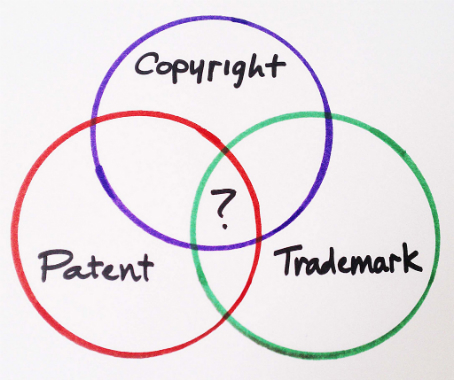You can’t copyright your brand name, trademark your own invention or patent your piece of literature. You can’t do any of the above-mentioned activities because patents, copyrights, and trademarks are all inherently different even if all three qualify as types of intellectual property. While the information we are presenting you with is useful for you even for the sake of common knowledge, this information is all the more important if you are trying to correctly (or incorrectly) protect your work through a patent, a copyright, or a trademark.
Patents
Patents are those intellectual properties that concern themselves with the protection of an invention’s design (industrial designs) or its functionality (utility patents). Inventors seek to have their inventions patented as a patent protection provides for exclusive rights over the use and commercialization of inventions for a period of twenty years assuming that the patent issues and that all requisite fees are paid. The patent application process can be complicated and time-consuming. Having an IP lawyer or agent by your side can make a difference.
Trademarks
Nike’s registration of their classic ‘tick mark’ symbol has provided them with the ability to stop others from using a similar mark in confusing circumstances. Today, their ‘tick mark’ is well known and clearly identifies their products without the need to use the word Nike. Businesses and individuals have the option to trademark a (definitive and unique) symbol, a logo, a coat of arms or a motif and use it as an indicator of source for their products and services. The trademark process can be challenging to navigate. Avoiding infringing existing trademarks and avoiding weak trademarks is important. An IP lawyer or agent can assist with this.
Copyrights
Your favorite Beatles song ‘Strawberry Fields Forever’, your favorite book ‘A Clockwork Orange’, and your favorite movie ‘The Seventh Seal’ are protected by copyright. Unlike patents, copyright protection is automatic and is given at the time of creation. It is possible to file for a copyright registration to obtain proof of ownership of the copyright, however it is not necessary to have a registration to own a copyright. Copyright protects writings, sound recordings, paintings, photographs, and movies. In Canada, a copyright protection over an artist’s work stands until 50 years after the demise of the artist. There is an abundance of those who intentionally or unintentionally infringe upon others’ copyrights.
With a general understanding of the principal differences between the three terms, seeking the correct type of protection for your intellectual property is possible. Knowing which type of intellectual property to seek is simply the first step. Do you know how to go about obtaining that protection and commercializing it? Contact us for assistance with protecting your intellectual property.

